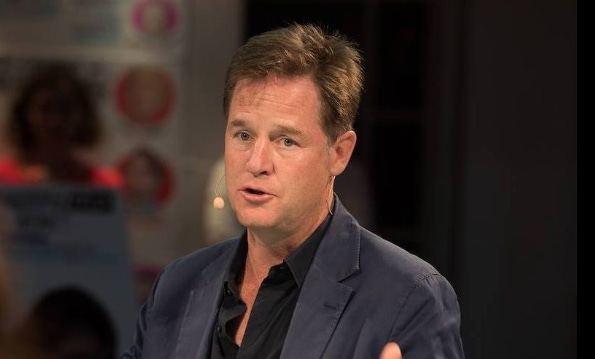Facebook’s head of PR reportedly had a series of meetings with EU and UK officials aiming to safeguard the social network’s business model heavily relying on targeted advertising.
March 11, 2019

Facebook’s head of PR reportedly had a series of meetings with EU and UK officials aiming to safeguard the social network’s business model heavily relying on targeted advertising.
Sir Nick Clegg, the former UK Deputy Prime Minister, now Facebook’s VP for Global Affairs and Communications, met three EU commissioners during the World Economic Forum in Davos and shortly after the event in Brussels, according to a report by the Telegraph. These commissioners’ portfolios include Digital Single Market (Andrus Ansip), Justice, Consumers and Gender Equality (Věra Jourová), and Research, Science and Innovation (Carlos Moedas). Clegg’s mission, according to the Telegraph report, was to present Facebook’s case to defend its ads-based business model in the face of new EU legislation related to consumer privacy.
According to a meeting minutes from the Ansip meeting, seen by the Telegraph, “Nick Clegg stated as main Facebook’s concern the fact that the said rules are considered to call into question the Facebook business model, which should not be ‘outlawed’ (e.g. Facebook would like to measure the effectiveness of its ads, which requires data processing). He stated that the General Data Protection Regulation is more flexible (by providing more grounds for processing).”
In response, Ansip defended the proposed ePrivacy Regulation as a complement to GDPR and it is primarily about protecting the confidentiality of consumers’ communications. In addition, the ePrivacy Regulation will be more up to date and will provide more clarity and certainty, compared with the current ePrivacy Directive, which originated in 2002 and last updated in 2009. Member states could interprete and implement the current Directive more restrictively, Ansip warned.
Facebook’s current security setup makes it possible to access users’ communication and able to target them with advertisements based on the communications. Under the proposed Regulation, platforms like Facebook need to get explicit consent from account holders to access the content of their communications, for either advertisement serving, or effectiveness measuring.
There are two issues with Facebook’s case. The first one is, as Ansip put it, companies like Facebook would still be able to monetise data after obtaining the consent of users. They just need to do it in a way more respectful of users’ privacy, which 92% of EU consumers think important, according to the findings of Eurobarometer, a bi-annual EU wide survey.
Another is Facebook’s own strategy announced by Zuckerberg recently. The new plan will make it impossible for Facebook to read users’ private communications with its end-to-end WhatsApp-like encryption. This means, even if consumers are asked and do grant consent, Facebook in the future will not be able to access the content for targeted advertising. Zuckerberg repeatedly talked about trade-offs in his message. This would be one of them.
On the other hand, last November the EU member states’ telecom ministers agreed to delay the vote on ePrivacy Regulations, which means it will be highly unlikely that the bill will be passed and come into effect before the next European Parliament election in May.
The office of Jeremy Wright, the UK’s Secretary of State for Digital, Culture, Media and Sport, did not release much detail related to the meeting with Clegg, other than claiming “We are at a crucial stage in the formulation of our internet safety strategy and as a result we are engaging with many stakeholders to discuss issues pertinent to the policy. This includes discussions with social media companies such as Facebook. It is in these crucial times that ministers, officials and external parties need space in which to develop their thinking and explore different options in a free and frank manner.”
The Telegraph believed Clegg’s objective was to minimise Facebook’s exposure to risks from the impending government proposals that could “place social media firms under a statutory duty of care, which could see them fined or prosecuted” if they fail to protect users, especially children, from online harms.
It is also highly conceivable that the meeting with the UK officials was related to influence post-Brexit regulatory setup in the country, when it will not longer be governed by EU laws. Facebook may want to have its voice heard before the UK starts to make its own privacy and online regulations.
About the Author(s)
You May Also Like








.png?width=300&auto=webp&quality=80&disable=upscale)


_1.jpg?width=300&auto=webp&quality=80&disable=upscale)


.png?width=800&auto=webp&quality=80&disable=upscale)